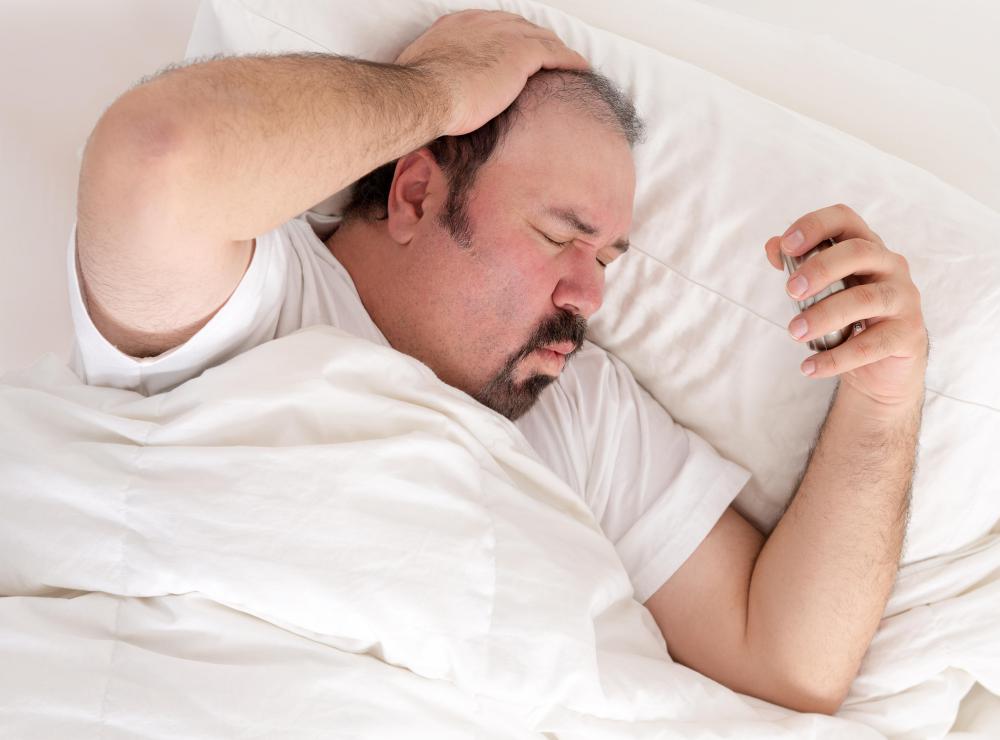At TheHealthBoard, we're committed to delivering accurate, trustworthy information. Our expert-authored content is rigorously fact-checked and sourced from credible authorities. Discover how we uphold the highest standards in providing you with reliable knowledge.
What is Sleep Apnea?
People suffering from sleep apnea stop breathing for seconds or minutes at a time during the night. Arrested breathing results in restless sleep, frequent awakenings, headaches, loud snoring, and memory deficiency. Either due to malfunctioning muscles or a misfiring brain, the throat doesn't open in time with expanding lungs, so the blood fails to acquire sufficient oxygen.
Two kinds of sleep apnea work by different means yet create the same effect. In the obstructive variety, your throat shuts when it usually remains open to let air through. At first, shallow or short breaths still squeeze through, but then the throat shrinks completely closed. Your body senses that your throat, tongue, or uvula must be preventing breaths. When oxygen isn't getting absorbed, your brain sends an emergency signal for you to wake up so you can clear the air passage.

The brain is the culprit in the second sort of sleep apnea -- central sleep apnea. The brain stops reliably regulating your automatic muscle movements, such as lung expansion and heartbeat, which occur even when other muscles are paralyzed during deep sleep. Neurons don't properly carry messages to trigger the "breath" directive in the throat and lungs so you stop breathing regularly.

From the Greek, "apnea," meaning, "needing breath," this condition is alarmingly common. Sleep apnea especially affects those who are over 50 years of age, male, and overweight. Chronically under-treated, sleep apnea often goes undiagnosed. People assume they aren't getting the best night's sleep, not realizing that they aren't breathing enough.
Sleep apnea makes you tired and irritable where you have trouble remembering or concentrating. Someone who sleeps near you can tell you if they hear coughing or snoring. Since sleep apnea can eventually lead to high blood pressure and increased risk of stroke, we should all confirm that we are getting enough oxygen during the night.

Your general doctor can supervise an overnight observation by a neurologist, pulmonologist, or polysomnologist who study aspects of sleep behavior. They might hook you to sensors to measure your brain waves, muscle movement, pulse, and oxygen saturation. They'll determine if you stop breathing for more than ten seconds at least five times an hour. Surgery can be used to remove throat tissue or tonsils. Your breathing can be assisted by an air pressure machine that keeps airways open. More commonly, your doctor will advise important lifestyle changes, including not drinking alcohol or taking any sleep aids before falling asleep, losing weight, or sleeping on your side instead of your back. Consult your physician for details on sleep apnea.
AS FEATURED ON:
AS FEATURED ON:














Discussion Comments
Hello Anon4461: Based on the symptoms you have described, your husband might be suffering by a sleep apnea related sleep disorder. Consult with a general medicine doctor or pulmonologist.
Have your doctor refer you to a specialist. The specialist doctor will interview you and your husband and determine if you have strong enough symptoms to warrant a overnight study in which he will be monitored for sleep apnea.
I think my husband has sleep apnea, but how do we find out? Do we need to get his doctor to refer him to a sleep clinic or something? He's so tired all the time, and we don't know what to do. He snores really badly and sometimes it's like he forgets to breathe out (I always thought sleep apnea was about not breathing in, but he seems to breathe in OK, just not out). Also, he can't seem to sleep on his side, only his back. Any advice would be appreciated. Thanks.
Post your comments